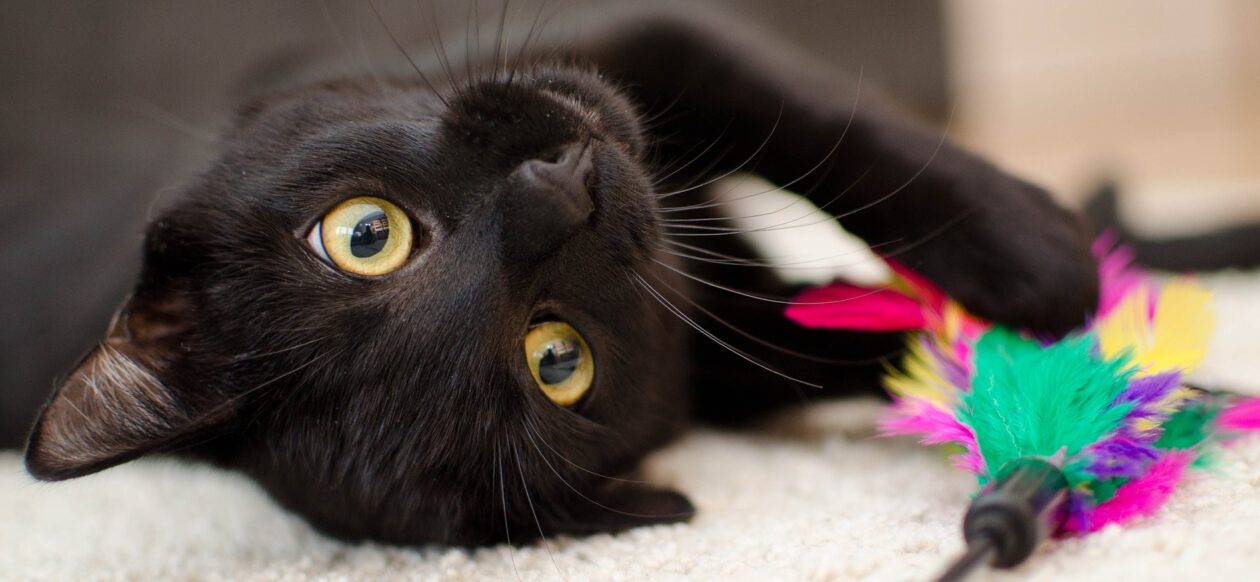Probiotics are the “friendly” desirable bacteria that boost digestion, build a healthy digestive/intestinal and immune system, and reduce the harmful bacteria and organisms that can invade the body and cause infections and disease. Probiotics work to enhance the right balance of GI bacteria.
I have learned through my two cats with Inflammatory Bowel Disease (IBD), that probiotics given daily in their food really helps to strengthen and build their intestinal tract and reduce the symptoms and suffering caused by IBD. In cats, IBD is caused by intestinal disorders that increase inflammation in the lining of the digestive tract. Food sensitivities and allergies can contribute to IBD, and chronic diarrhea and/or vomiting are typical symptoms that result in the inflammation and scar tissue in the lining of the intestines.
Who Needs Probiotics?
Not all cats need probiotics, but if your cat has loose or smelly stools, chronic diarrhea, lots of gas, is taking steroids for prolonged periods of time for a chronic medical issue, or is on antibiotics for an infection—probiotics can help get their intestinal and digestive system health back on track and ease any suffering they might feel.
If you’re giving antibiotics to your cat, give the probiotic two hours before OR after you give the antibiotics because the antibiotics will kill the probiotics. Or you can wait until after the antibiotics are finished to begin giving the probiotic.

What causes an over-abundance of harmful organisms in the intestinal tract to cause health problems?
- Antibiotics and using of prescription drugs like steroids
- Poor quality commercial cat food or a change in diet
- Surgery
- An inadequate diet
- A compromised immune system
- Chemicals in the water supply
- Fertilizers, pesticides and other chemical pollutants
- The aging process
- Disorder like – hyperthyroidism, renal failure, pancreatitis, urinary tract problems, etc.
- Major changes at home
- Stress
Common Symptoms of an Unhealthy Digestive Tract
- Gas
- Constipation
- Diarrhea
- Sluggishness, lack of energy
- Skin problems
- Irritable Bowel Syndrome (IBS) and Inflammatory Bowel Disease (IBD)
What Probiotic Should You Choose? What to Look For?
There are many probiotics to choose from, and some are of low quality but are heavily marketed to the public. Be careful of contamination, purity, and potency issues with these products. Look for a high quality pet probiotic with the following key features:
- Look for “GMP” certification to assure the purity, potency and viability of the product.
- The higher the number of beneficial bacteria the better, so look for a minimum of 20 million beneficial bacteria for each serving.
- It should contain at least 10 or more strains of beneficial bacteria.
The probiotic that I have had great success with and can personally recommend is Nexabiotic for Cats by DrFormulas. It has 23 strains, 17 billion CFUs, is non-GMO, is flavorless and is easy to mix into your cat’s wet food. It comes in convenient, easy-to-empty capsules. The first strain listed is Saccharomyces Boulardii, which can be very healing for cats with IBD. Nexabiotic Probiotics is made using ingredients intended for human consumption, but is formulated for cats and their particular gut microbes and digestive system.
Probiotics Come in Many Forms
Probiotics are made by many brands today and come in many different forms including: liquid, capsules, tablets, and sealed packets. Some of them need to be refrigerated. My probiotic is in a powdered form that I purchase from a holistic veterinarian, and I add a small amount or pinch to each of my cat’s food, daily. If you pick a probiotic using the guidelines outlined above, you will find it easier to narrow the selection and get a more effective, beneficial probiotic.
Good luck and here’s to your cat’s ongoing good health!


